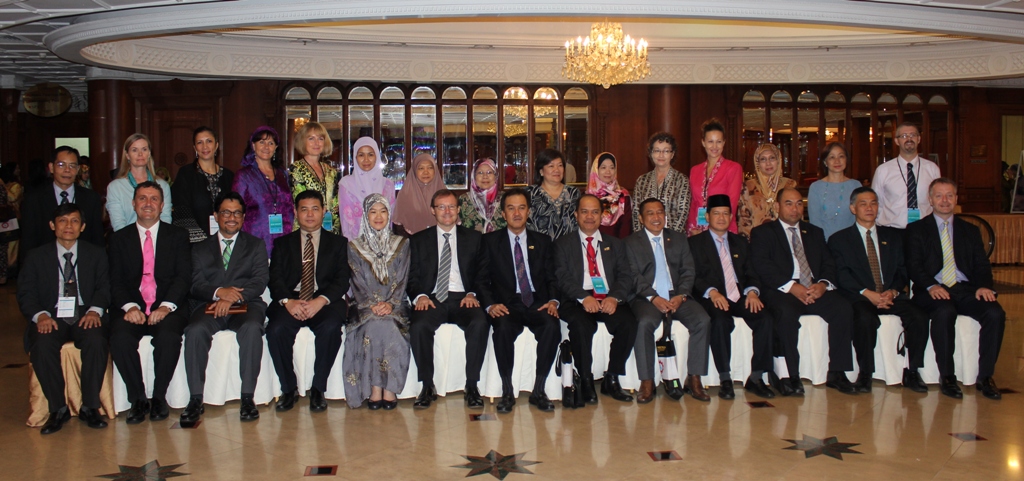31st October 2012 London, UK
Vocational English: building a bridge between education and industry.
Does anyone own the English language? Of course not, thank Goodness! Though I sometimes wish there were an “Acronym Authority”.
Those questions cropped up in workshops I attended last week with 240 teachers from vocational and technical schools all over Brunei. The event was funded by the Ministry of Education, who have prioritised VTET – Vocational and Technical Education and Training.

Or should that be VOCTECH, as in the title of the ASEAN Regional Centre which brought us together? SEAMEO, the South East Asian Ministers of Education Organisation, has based its vocational and technical training centre in Brunei.
Or were we really talking about TVET? Or VTEC? Those abbreviations are more commonly used in the UK, where the course content originated – made available in Brunei by CfBT, the British education Trust which has provided Anglophone teachers in Brunei’s schools for decades, and which is now responding to the Ministry’s new emphasis on…. well, you know what I mean.
As it turned out, only over acronyms were we “divided by a common language”. Otherwise, we were all on the same page. We agreed on the extraordinary importance of vocational and technical education: in Brunei, in ASEAN, and all round the world. Vocational training held the key to social harmony and economic development. We ignored this cohort of young people at our peril. Investment in the teachers who serve them could save from unemployment a generation of potential technicians whose skills were needed now; and would be needed even more in future. We had to “build a bridge between education and industry”.
We also agreed that Brunei’s consistent use of the English language as a medium of learning – through decades when some of the Sultanate’s neighbours had treated English as a political football – presented Brunei with a significant advantage, especially now ASEAN was integrating quickly, itself having adopted English as the official language of communication between South East Asian nations.
How has Brunei done this? Mainly by recognising that “English is the medium and not the message”. It is a tool, to be picked up and used alongside Malay, with both languages learned – and used for learning – side by side, from kindergarten (a fine English word). The “cultural neutrality” of the English language is understood by CfBT and – in our seminar – their specialists “walked the talk”; most of them dressed like their Bruneian colleagues, and all of them obviously at ease in the local milieu (another fine English word).
We have cooked up a plan – the British High Commission, Ministry of Education, CfBT and SEAMEO, along with academics from Oxford University for whom the “Brunei Success Story” is an object of scientific fascination – to tell this story to the region as a whole. We propose, at the SEAMEO Council in Hanoi next March, to unveil original research and show a short film which identify the main ingredients of Brunei’s recipe and serve it up for wider consumption, across ASEAN.
Meanwhile, I hope this blog of mine will prolong the lively debate begun at the CfBT seminar. The Ministry is developing an e-Forum for participants, which CfBT will help moderate. In South East Asia, the world of education is changing fast. Those like Brunei, who embrace new techniques, will be able to lead and shape that change.